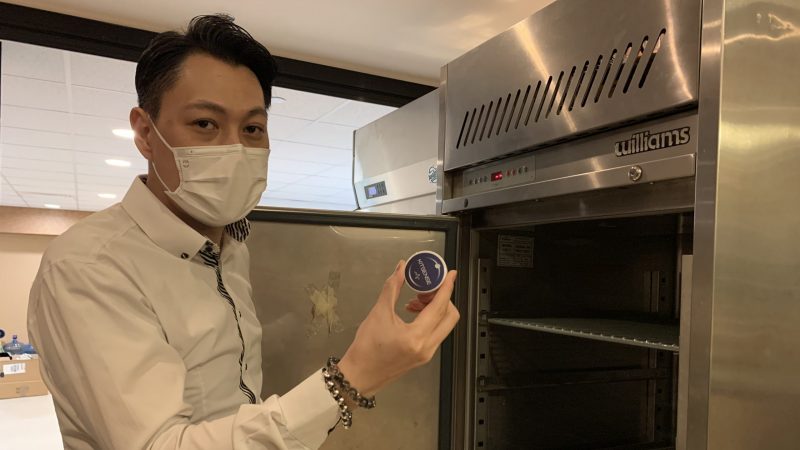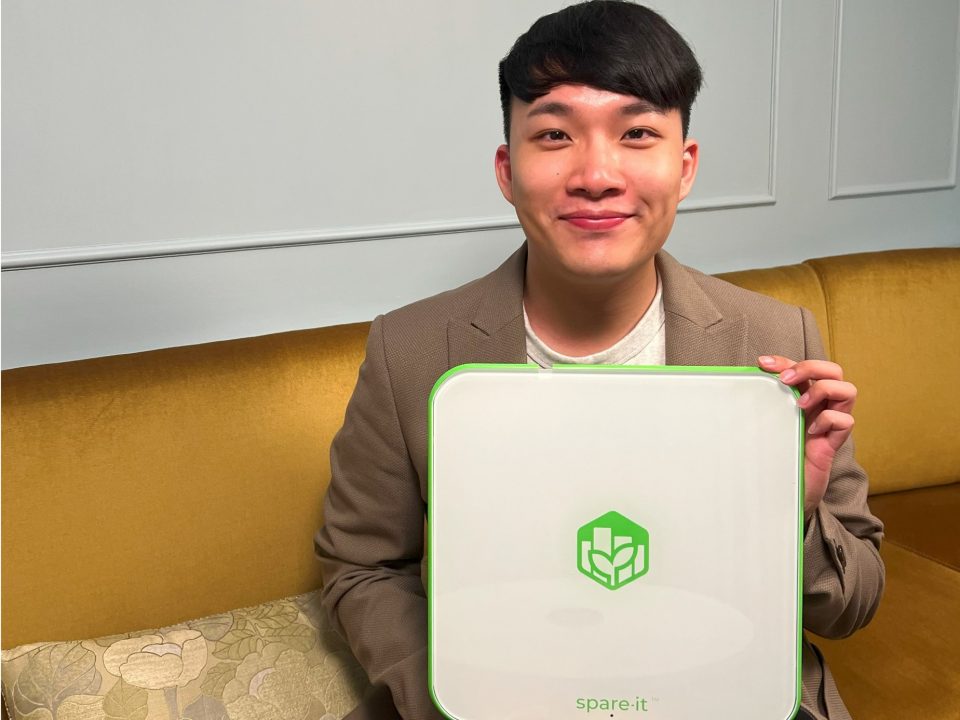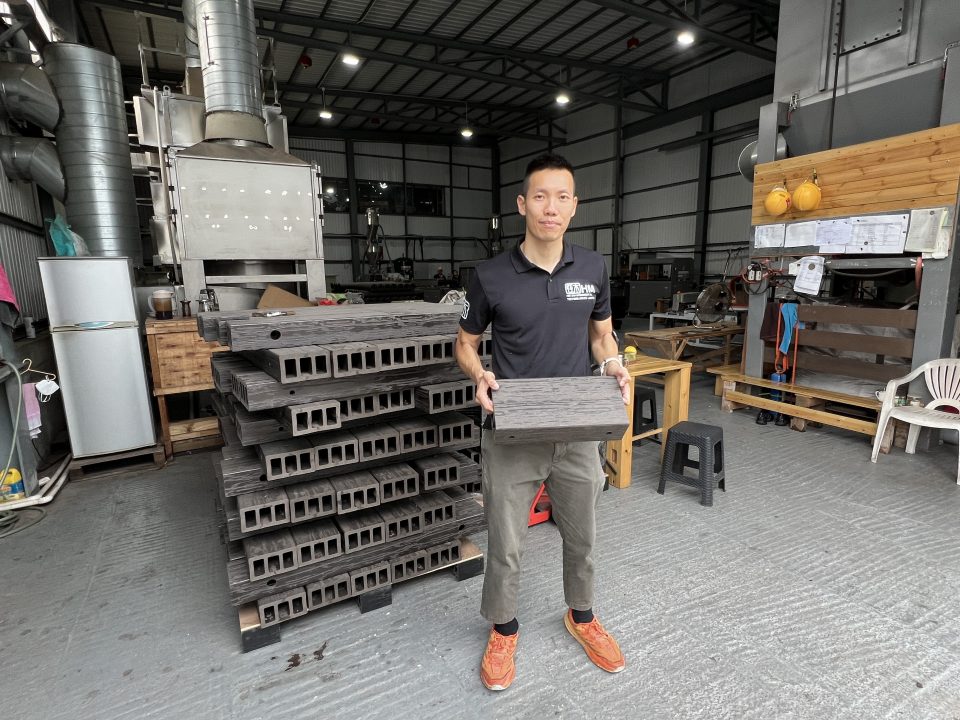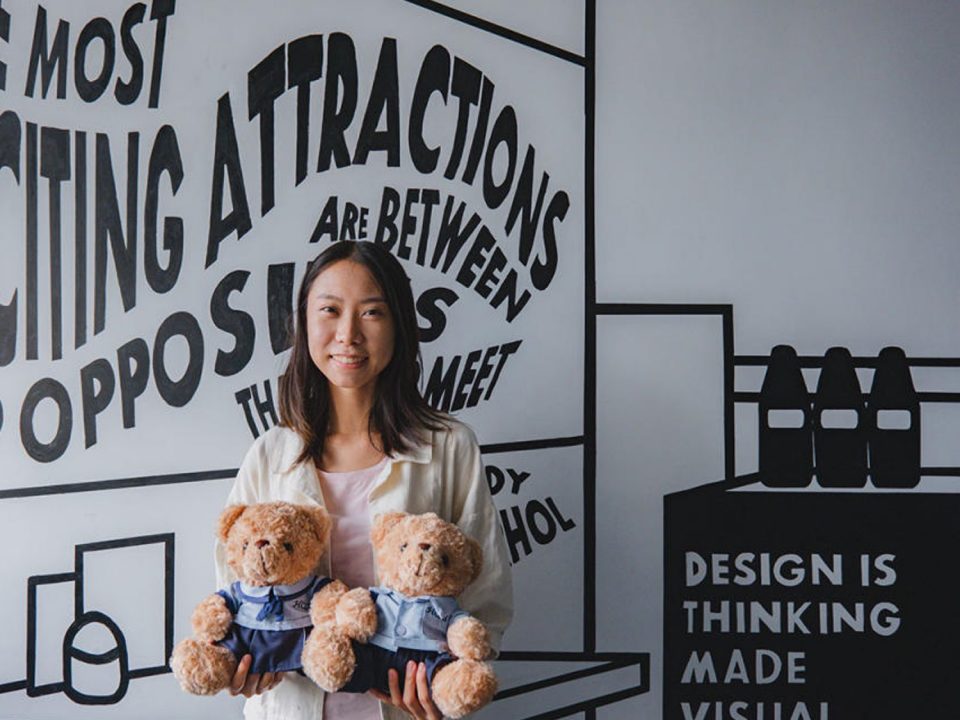
Meiriki Japan: The People-Oriented Management Philosophy
June 6, 2022
Elkay Interior Systems: Promoting Sustainable Development within Value Chain through Agility
August 8, 2022Empathy in Practice – Humanised Design and Workplace Inclusion by Pacific Foodservice Equipment Company Limited
Beep-beep-beep!
A new notification popped up on a staff member’s phone screen – it’s an alert from KitSense, an application developed by Pacific Foodservice Equipment Company Limited (PFEC).
[There is a problem with the refrigerator in the nursing home. Please notify the relevant staff as soon as possible.]
The application monitors the performance of kitchen facilities in their customer’s restaurants in particular. This time, it was a reminder that the refrigerator door of the nursing home in another district was not closed properly, and the food stored inside is at risk of spoilage.
The KitSense system can be described as the Care-On-Call of the kitchen. It not only connects the kitchen with the company backend but also provides better safeguards for diners or other service users. Lau Chi Wai, also known as Van, the Operation Director of PFEC, has spared us time from his busy schedule to share how the company is humanising technology to benefit different people in society.
Van has been working in the foodservice industry for nearly 20 years, specialising in equipment used in food factories and bakeries; while his two partners have more than ten years of experience with equipment in making Western, Chinese and Southeast Asian cuisines. Their vast exposure has brought with them first-hand knowledge about materials wastage and labour shortage in the industry. As such, they hope to bring about meaningful changes through their business.
| Established in 2013, PFEC provides kitchen design and consulting services, including kitchen project coordination, supply and installation of imported catering equipment, and the related maintenance services. Simply put, it is a restaurant kitchen’s backend support partner. With 50 employees currently, the company plays distribution and retail roles in the industry’s supply chain. The catering industry can be described as quite traditional, and many senior executives started from the very bottom and worked their way up in the field. However, this does not hold back the determination of PFEC to operate with an exceptional model for sustainable development. They focus on three aspects – “Industry, innovation and infrastructure”, “Sustainable cities and communities”, and “Partnerships for the goals”. |
When hearing that a few of PFEC’s policies coincide with the Sustainable Development Goals, Van explained jokingly that he doesn’t know much about this jargon. However, he believed being “people-oriented” will never go wrong – as people are the end users of technological products. Most of PFEC’s designs correspond to the needs of specific communities. One of their main service targets is nursing homes.
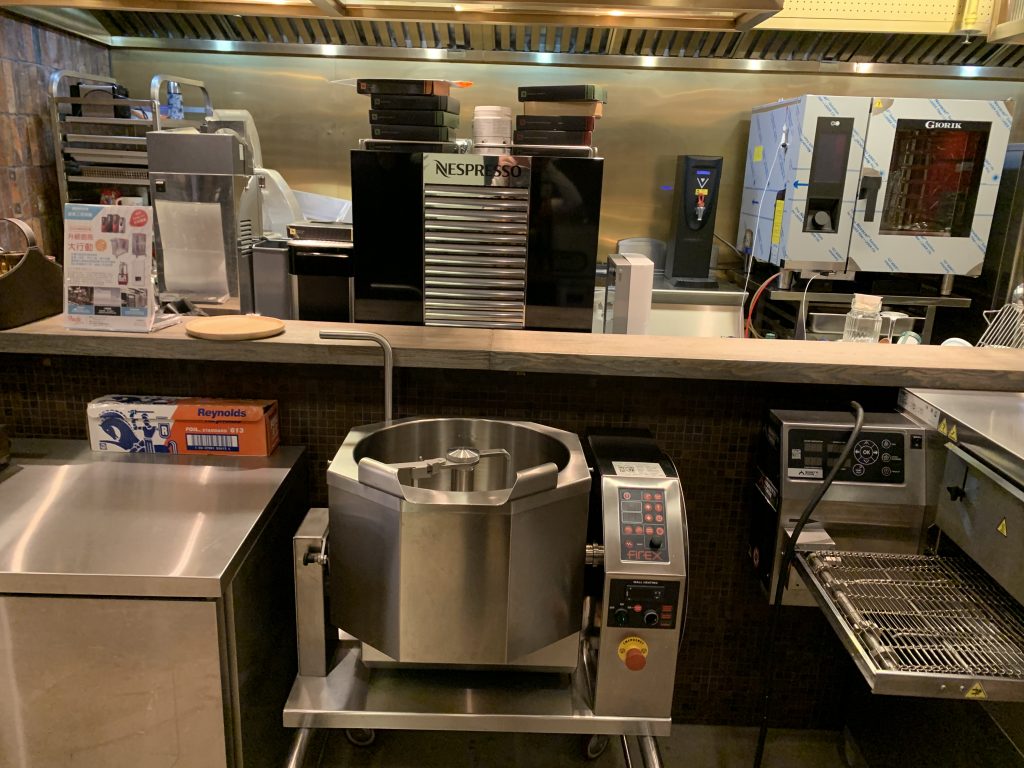
The flair in humanised design
[Innovation]
Developed by KNET, a company owned by PFEC, KitSense can detect the humidity and temperature of kitchen equipment. As ordinary as it may sound, it can effectively save manpower when used by nursing homes. “The Food and Environmental Hygiene Department requires nursing homes to record the temperature and humidity of the refrigerators every day, but staff are busy and rushing all the time. Sometimes they don’t remember. All of these will affect their daily work.” This led to the development of KitSense, allowing the nursing home’s staff to monitor the temperature and humidity change, as well as the operation of the machines through a computer or mobile phone.
Not only did KitSense adopt humanised designs, but also developed many more technologies such as the smart porridge cooker and soft food machine. Van eloquently asked, “Did you know what time should a nursing home’s chef get to work if one wants to make congee? 6, or 7 a.m.? It’s 5 in the morning!”. Cooking a pot of congee demands a huge amount of effort and time. What’s more bothersome is that the thick porridge sticks easily to the bottom of the cooker. If the bottom is scorched, the whole pot of porridge can’t be served. That’s why PFEC has designed a smart porridge cooker. As long as the prepared ingredients were added to it the night before, and the time adjusted, the porridge cooker will start cooking at the preset time. By connecting the cooker to a mobile phone, the chef can remotely monitor the temperature fluctuations and control the cooking settings. Last but not least, the soft food machine. However delicious some delicacies are, they are irrelevant to the elderlies that experience difficulty in chewing. Thankfully, this machine can turn different ingredients into soft meals that are suitable for these seniors. PFEC worked with manufacturers to have the engineers modify the existing equipment to transform it into this new machine.
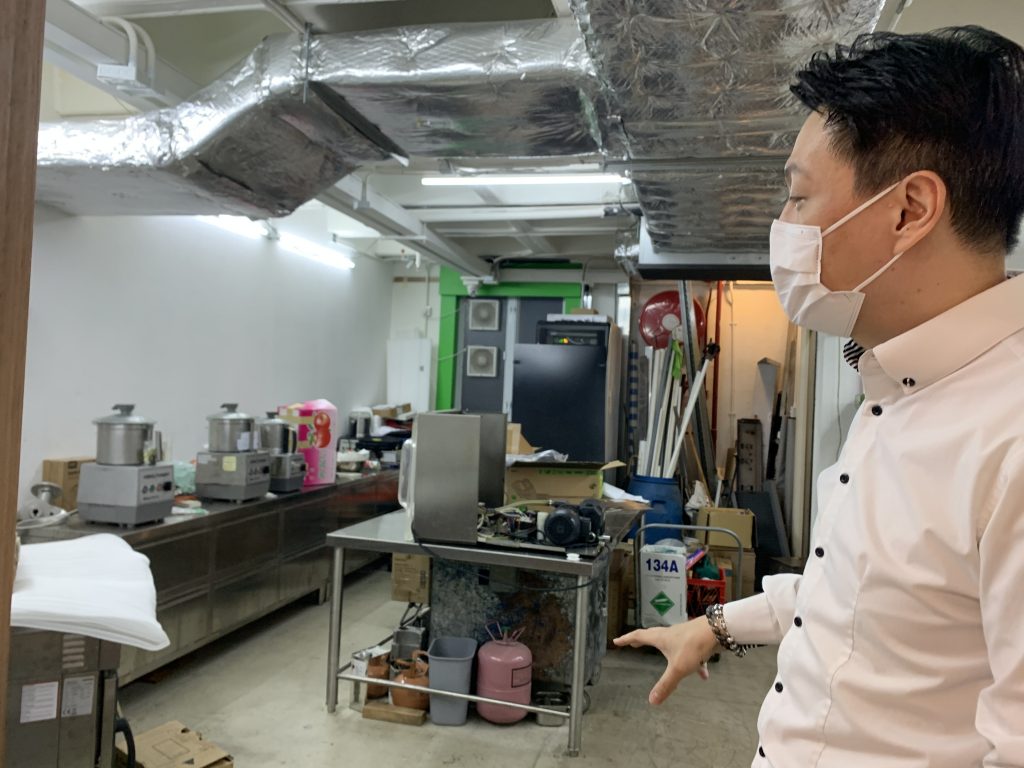
In fact, this practice is uncommon in the industry. The catering industry emphasises speed, and it’s clear that retrofitting old machines is not the fastest way. In these cases, companies would choose to throw away the leftover ingredients or deteriorated machines directly, then buy them again to save manpower and material costs. Van thought that it was a shame, being both environmentally unfriendly and wasteful. When being asked, as these communities are minorities in our society, is it worth investing that many resources in them? He shrugged and said,
“Actually, it’s a social responsibility. If someone needs help, why not?”
How to retain talent in the era of labour shortage?
[Workplace culture]
Besides putting people at the core of its product design, PFEC also advocates cross-generational collaboration within the company through interesting initiatives to promote communication, mutual trust, and cooperation between employees. In fact, the foodservice equipment market is quite a niche, which makes selling products difficult. Salespeople require a vast range of professional knowledge, from water and electricity to engineering and procurement, in order to match the most suitable equipment to different restaurants. Yet the low salary deters young talents from entering the industry. The labour shortage in recent years is a headache for Van. In light of this, the company has introduced various measures to strengthen employees’ sense of belonging within the company, hence minimising talent loss.
For example, before the pandemic, PFEC held company trips every year, allowing employees to go on holidays together. Even under the pandemic which makes outbound travel impossible, the company still hosts a variety of activities to maintain the employees’ relationship, such as yacht trips and war games. These activities are arranged on weekdays, with a view to not affect employees from spending the weekends with their families. PFEC’s staff also occasionally have meals together at the restaurants where kitchen projects have been completed. This not only lets everyone have a good meal but also allows employees to see first-hand the results of the projects that they followed through from an initial plan to the final product.
The management team also understands that to operate well in the industry involves collaboration between employees of different age groups. For example, a young salesperson needs to communicate effectively with an experienced, senior mechanic. Therefore, the team arranges regular sessions for mechanics to teach new salespeople how to repair the machines. The company also arranges for new employees to sit with senior colleagues in the administration department so that they always have someone more experienced nearby for guidance. “By sitting together for three months, it’s easier for the new colleague to assimilate into the company culture!” said Van.
Van believes that having a management structure does not necessarily make the company hierarchical.
He explained that the management team is like parents who are leading by example, so new colleagues can see the direction of their future career paths, and feel encouraged to move up. In addition, when there is a “parent” to guide, it is easier for new colleagues to find relevant parties for help when they have questions or struggles.
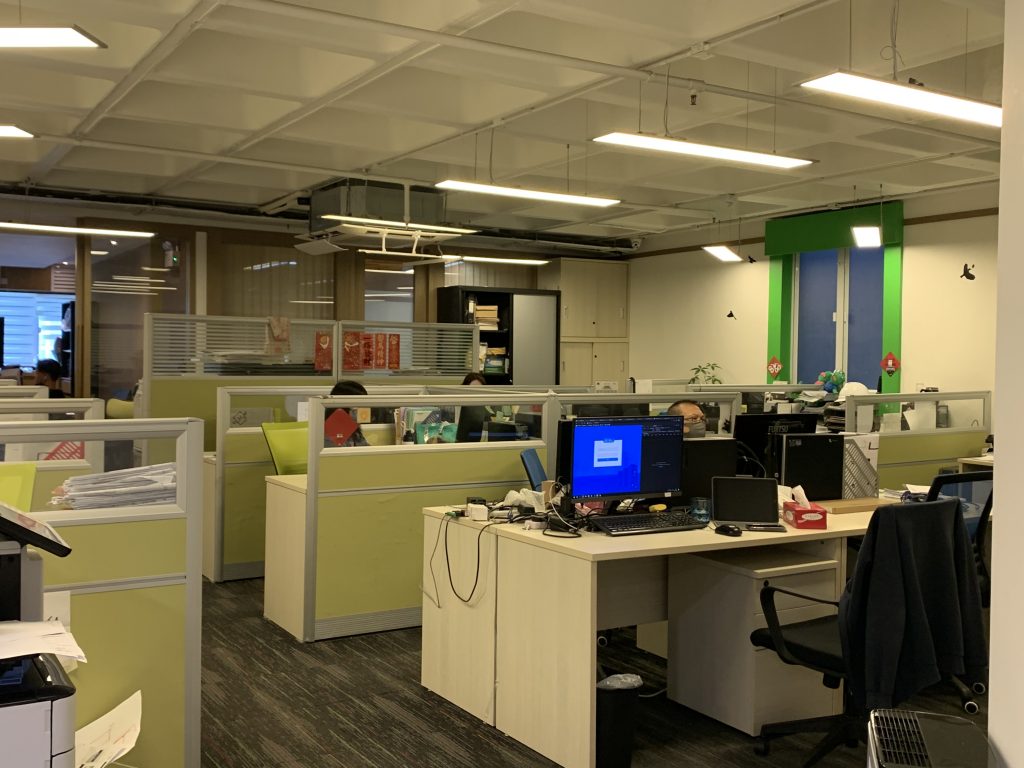
Social responsibility is a virtue after all
Entering the tenth year, PFEC hopes to further expand the company’s business in society to make contributions. Amid the sweeping pandemic in the past few years, the everchanging anti-epidemic measures make business operations difficult. “The government suddenly changed the food and environmental hygiene regulations, demanding restaurants to ensure a ventilation rate of 6 air changes per hour, which is equivalent to medical-grade requirements. Usually, it is 4 times per hour, so how can we create the extra 2?” Hence, PFEC joined hands with other companies in the early days of the outbreak to sell air purifiers at cost prices, assisting restaurants in meeting the government requirements. At the same time, they purchased hospital disinfectants from Japan, collected bread from various sources, and redistributed them to nursing homes. In the future, they plan to develop a food delivery robot with the IT subsidiary KNET to reduce the contact between diners and staff, minimising the risk of disease transmission.
When you walk around the office of PFEC, you will find the work atmosphere relaxing, with decorations by each colleague filling every corner. Few colleagues even once stayed overnight. Having trust amongst employees and the company is something Van is very proud of. “My colleagues like the company very much.” Given that the industry lacks young talents and many senior industry practitioners are driven by self-interest, integrating sustainable development in the corporate or even industry management approaches may seem distant. Nevertheless, Van said with a smile,
“Actually, always start from your heart, no matter if it is for your work or your colleagues. It is the basic principle of being human.”
PFEC is one of the recipients of the Merit Award in SMEs Sustainability Leadership Recognition Scheme 2021 cohort. The Scheme is part of the Partnership for Sustainability Leadership in Business, which is initiated by the Centre for Civil Society and Governance, The University of Hong Kong, and supported by The Hongkong Bank Foundation.



